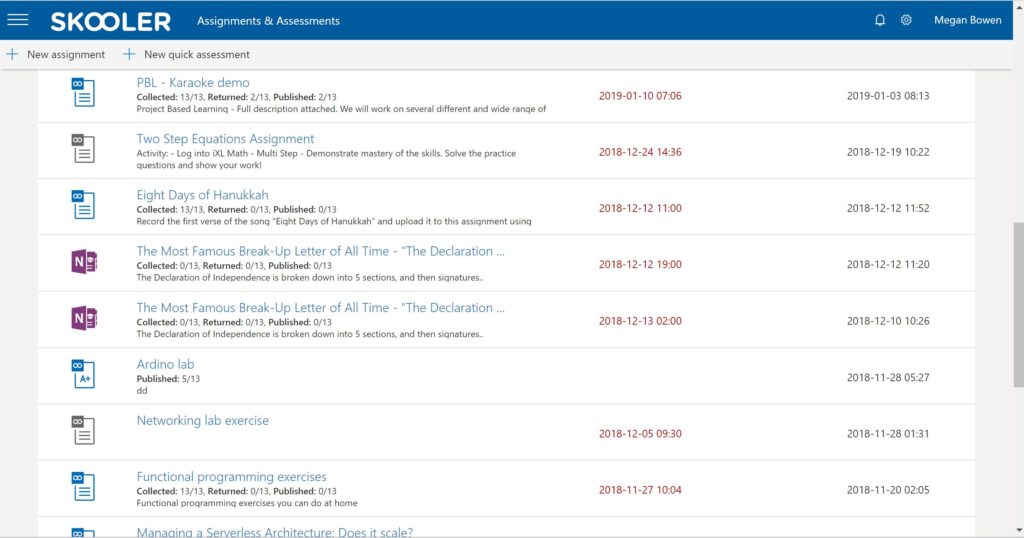It’s difficult for parents and students to understand much of the terminology that’s used in the classroom today when it comes to grading. Rubrics, proficiency grading, learning targets, and formative assessments are just some of the terms used by teachers today. Parents are interested in knowing how their child is doing in school, how they are performing compared to other students, and where they might be able to improve. Yet with different grading systems and ideologies, it’s not easy for teachers and parents to bridge the gap between traditional grading systems and standards-based assessments.
Understanding traditional grading vs. standards-based assessments
Most of us grew up during the time when traditional grading systems were used. Teachers would define the criteria for grading, such as results on a test or homework, and assign a letter grade based on the number of right or wrong answers. According to Blackboard.com, traditional grading systems have the following attributes:
- Simple letter grades
- Assessments based on teacher-defined criteria
- A single overall grade per student based on a combination of related and unrelated assessments of skills, knowledge, performance and conduct over a period of time
Over time, educators have debated the benefits and drawbacks to using traditional grading systems. Many felt that this system didn’t truly reflect the student’s abilities nor was it an accurate assessment of how much the student learned. In addition, it was difficult to compare what a student learned and was graded on in one state versus another state. This led to a variety of new ideas about how to assess and grade students that resulted in such terms as standards-based learning, proficiency-based learning and competency-based learning. For this discussion, these terms are interchangeable, yet it’s not easy to agree on a specific definition.
Standards-based learning is defined as “an innovation in education that focuses on learning and helps increase achievement. It is often combined with updated instructional practices and culture to better engage students and foster a positive environment.” Yet measuring how a student has increased their achievement is not easy.
The glossary of education reform explains the difficulty in defining the term standards-based learning.
“Defining standards-based learning is further complicated by the fact that educators not only use a wide variety of terms for the general approach, but the terms may or may not be used synonymously from place to place. A few of the other common synonyms include mastery-based, outcome-based, and performance-based education, instruction, or learning, among others.”
The simplest way to understand the difference between the two systems is to think of it like this:
- In a traditional grading system, a teacher will combine a variety of elements to come up with a grade, such as test scores, homework, quizzes and classroom participation.
- In standards-based grading, each of those elements is viewed separately, which allows the teacher and the parents to identify specific areas where the child might need help, and then each of the elements is combined to determine an overall grade.
Which system is better?
Ask ten educators which grading system they prefer and you will get a variety of answers. However, the current focus throughout schools is on using standards-based assessments since it gives a better all-around view of the student, their performance, where they are strong and where they might need help.
Skooler’s Learning Management System is designed to support how teachers keep track of assignments and grades and supports standards-based learning. Teachers can outline learning goals and specific areas of focus which students and parents can easily access. Using Skooler’s Dashboard feature allows teachers, students and parents to understand what areas the student is proficient in and which areas need attention.

Each system has its own merits and Skooler supports both traditional grading and standards-based grading. However, most school districts have shifted to standards-based grading since it’s a more objective way of assessing a student’s grasp of the information. The skills taught by using standards-based learning, such as preparation, problem-solving, participation and effort, are very important for students as they complete their education and adjust to their different career paths.
